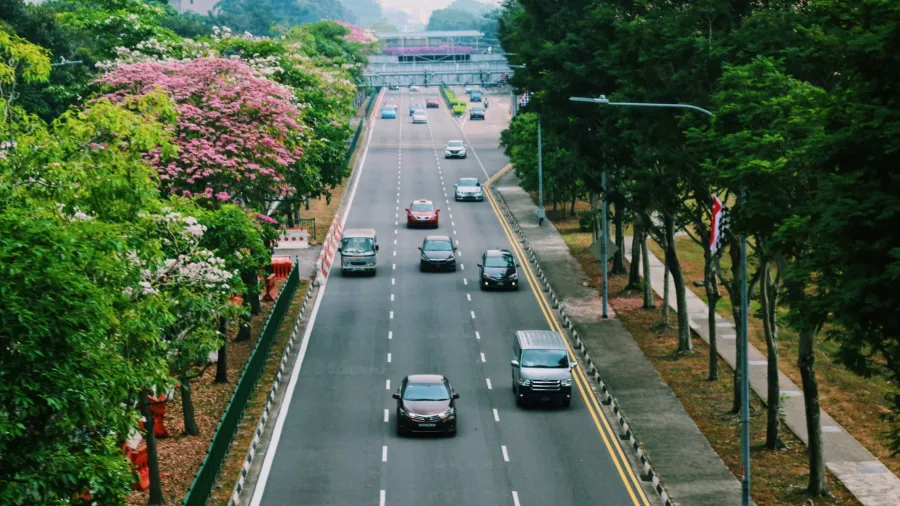
New bill passed to safeguard Singapore's transport sector
This is in response to evolving threats including the possibility of malicious interference.
Singapore has passed a new bill aimed to strengthen essential transport services and defend against potential disruptions.
In a speech at the Parliament, Transport Minister Chee Hong Tat emphasised the importance of preparing Singapore for extreme scenarios, citing the risk of malicious actors gaining control and influencing key transport entities, potentially jeopardising the provision of essential transport services in the nation.
The bill introduces a transport sector-specific regulatory framework, tailored to the unique needs of Singapore's air, land, and sea transport sectors.
Chee said this targeted approach aims to provide customised regulatory oversight whilst balancing the commercial interests of transport entities and their investors.
He said the legislation focuses on protecting key transport entities from undue external influences, rather than regulating their day-to-day operations.
Key highlights of the proposed legislation include the harmonisation of laws across the transport sector, reducing regulatory burdens on entities, and ensuring consistency in commercial and investment controls.
“This bill seeks to introduce a common regime covering both licensees and non-licensees across air, land and sea, to apply a consistent set of regulatory controls and to create a transparent and predictable regulatory environment for the entities,” he said.
The bill will amend several existing Acts, including the Bus Services Industry Act, the Civil Aviation Authority of Singapore Act (CAAS), the Maritime and Port Authority of Singapore Act, and the Rapid Transit Systems Act.
Entities meeting specific criteria will be designated by relevant authorities, such as the CAAS, the Land Transport Authority, and the MPA.
There will be two types of designated entities, including those designated as "operating entities" if they directly provide essential transport services in Singapore, and those designated as "equity interest holders" if they hold equity interest in the former.
Under the proposed changes, designated entities will be subject to stringent controls in three key areas, namely ownership, management appointment controls, and operations and resourcing controls.
Ownership controls mandate that entities notify authorities of any significant changes in ownership or control, ensuring transparency and oversight. Management appointment controls require approval for key appointments, safeguarding against external influence on strategic decision-making.
Designated entities must also notify authorities of events that could impede the provision of essential transport services, with authorities having "step-in powers" in extreme scenarios to ensure service continuity.
“I wish to assure members that step-in powers will be exercised as a last resort, to deal with extreme scenarios,” Chee said.
“They are meant to safeguard the provision of essential transport services in Singapore,” he added.



![SBR 5 Lorem Ipsum News 2 [8 May]](https://cmg-qa.s3.ap-southeast-1.amazonaws.com/s3fs-public/styles/exclusive_featured_article/public/2025-05/a_hand_pointing_to_a_futuristic_technology_5b87c9d0e3_3.png.webp?itok=M3Hf-9XR)
![SBR 4 Lorem Ipsum [8 May Top Stories]](https://cmg-qa.s3.ap-southeast-1.amazonaws.com/s3fs-public/styles/exclusive_featured_article/public/2025-05/a_hand_pointing_to_a_futuristic_technology_5b87c9d0e3_2.png.webp?itok=2m5Wl0MX)


![Exclusive three SBR 12 Lorem Ipsum [8 May]](https://cmg-qa.s3.ap-southeast-1.amazonaws.com/s3fs-public/styles/exclusive_featured_article/public/2025-05/a_hand_pointing_to_a_futuristic_technology_5b87c9d0e3_11.png.webp?itok=8kn_UIfA)
![SBR 3 Lorem Ipsum [ Exclusive 2]](https://cmg-qa.s3.ap-southeast-1.amazonaws.com/s3fs-public/styles/exclusive_featured_article/public/2025-05/a_hand_pointing_to_a_futuristic_technology_5b87c9d0e3_1.png.webp?itok=YCyjLegJ)
![SBR 2 Lorem Ipsum [8 May]](https://cmg-qa.s3.ap-southeast-1.amazonaws.com/s3fs-public/styles/exclusive_featured_article/public/2025-05/a_hand_pointing_to_a_futuristic_technology_5b87c9d0e3_0.png.webp?itok=_cKD-29o)

![Video [Event News]](https://cmg-qa.s3.ap-southeast-1.amazonaws.com/s3fs-public/styles/event_news_featured_article/public/2025-05/screenshot-2025-05-08-at-4.58.53-pm_0.png.webp?itok=Kud35sMs)
![Event News SBR 9 Lorem Ipsum [8 may]](https://cmg-qa.s3.ap-southeast-1.amazonaws.com/s3fs-public/styles/event_news_thumbnail/public/2025-05/a_hand_pointing_to_a_futuristic_technology_5b87c9d0e3_8.png.webp?itok=DTh_dbYp)
![Event News SBR 9 Lorem Ipsum [8 May]](https://cmg-qa.s3.ap-southeast-1.amazonaws.com/s3fs-public/styles/event_news_thumbnail/public/2025-05/a_hand_pointing_to_a_futuristic_technology_5b87c9d0e3_7.png.webp?itok=vzDAzb6V)
![Event News SBR 8 Lorem Ipsum [8 May]](https://cmg-qa.s3.ap-southeast-1.amazonaws.com/s3fs-public/styles/event_news_thumbnail/public/2025-05/a_hand_pointing_to_a_futuristic_technology_5b87c9d0e3_6.png.webp?itok=jvHFc4P6)
![Video [Event News]](https://cmg-qa.s3.ap-southeast-1.amazonaws.com/s3fs-public/styles/video_thumbnail/public/2025-05/screenshot-2025-05-08-at-4.58.53-pm_0.png.webp?itok=yZnI0YBb)
![Video 1 SBR [8 May]](https://cmg-qa.s3.ap-southeast-1.amazonaws.com/s3fs-public/styles/video_thumbnail/public/2025-05/screenshot-2025-05-08-at-4.58.53-pm.png.webp?itok=9AAeRz_k)

 Advertise
Advertise

